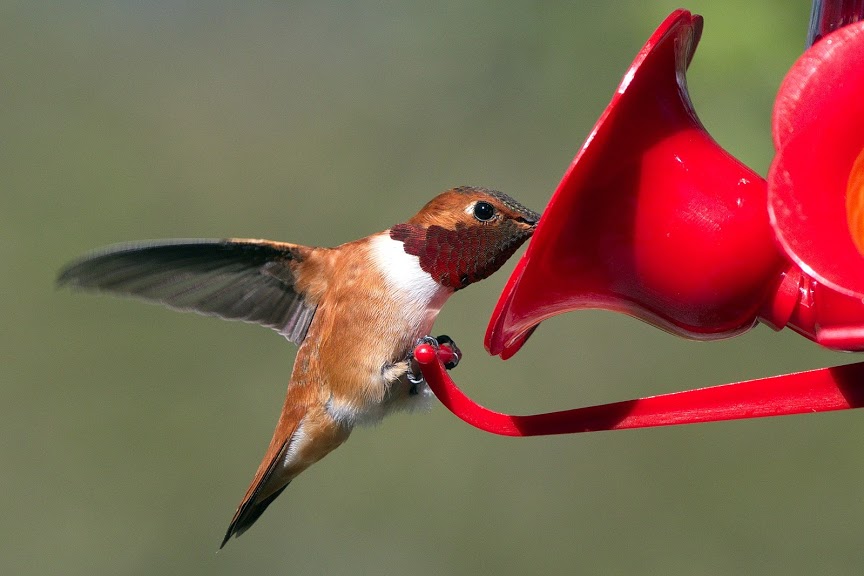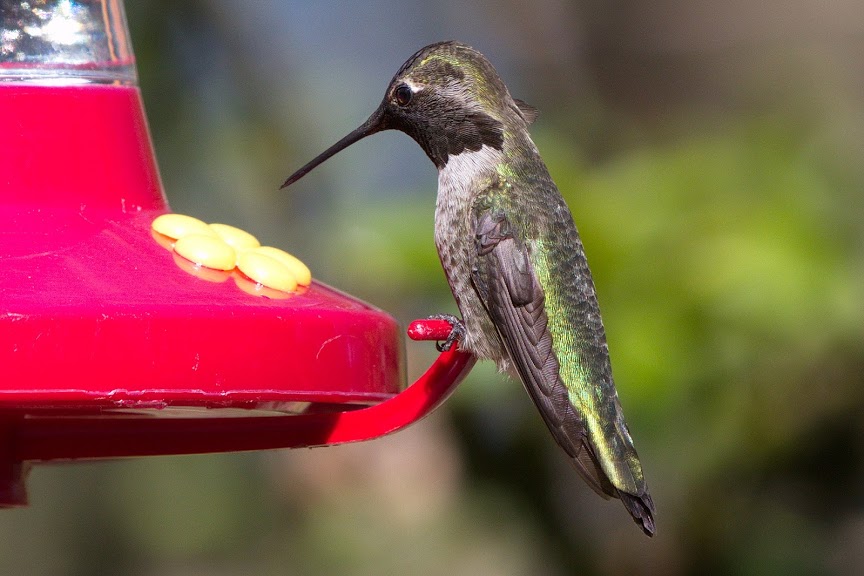Support Us
Since 1979 more than 140,000 animals have been treated by Wildlife Rescue.
Thanks to the support of individuals like you, Wildlife Rescue can provide a lifeline for animals in distress.
Did you know that Anna’s Hummingbirds are the only hummingbird who live year-round on the Pacific coast? Typically, during the winter months, hummingbirds would migrate south to avoid the harsh winters following insect populations and flowering food sources. Recently, hummingbirds have been staying behind due to natural and human changes that have altered their behaviors.

How do Hummingbirds Survive?
Hummingbirds need to eat A LOT, almost constantly. It may surprise you that such a small species who weighs about the size of a loonie has a high demand for food sources. Hummingbirds can consume half their weight in pure sugar every day. Nectar fuels hummingbird’s metabolism – the highest of an endothermic animal on the earth. Although these food sources are readily available in the spring and summer, winter becomes challenging. Insects and nectar-bearing flowering plants are scarce during freezing temperatures.
Why do they stay in the winter?
How do Hummingbird Preserve Energy?
Hummingbirds can easily go into torpor on cold nights. Torpor is a deep sleep where an animal decreases its metabolic rate by as much as 95%. By doing this, the hummingbird consumes less energy than it would if it were awake. The lowered metabolic rate also causes a cooling body temperature.
A torpid state allows them to conserve energy to survive lower temperatures faced in the winter when food sources are scarce. They also can change their diets in the winter to eat more insects when nectar flow is not available through feeders and natural sources.

What to do if you find Hummingbirds in Distress – four areas of concern:
With severe weather and a drastic drop in temperature, you may find hummingbirds or other animals in distress. Call the Wildlife Rescue Support Centre at 604.526.7275, option 1. Wildlife Rescue Support Centre will share best practices for the safety and survival of the animal. For additional information, visit our website here.
Some signs to watch for in the bird species are on the ground, weak, confused, soiled, tongue sticking out, visible injuries, or unable to fly. Please bring it to Wildlife Rescue as soon as possible.